The content of the article
People who give birth to cats, usually make sure that the pet was not only fed, but also received from the food all the ingredients necessary for health. Many seek to diversify the food of the animal. But the owners often do not think about the characteristics of digestion in cats and rely on long-standing stereotypes that have no real basis. But the wrong diet can not just shake the health of the animal, but also shorten its life.
Misconceptions about cat nutrition
There are several erroneous statements that are firmly entrenched in the minds of modern people.
"What a people, and the cat"
It is believed that the cat does not need any special food. Simply put in the bowl the same that the owners have prepared themselves. Cats and people are two completely different species, so their food should be different.Predators do not chew or digest the diet of an omnivorous person.
"What gave, eat!"
Allegedly, an obedient pet must meekly absorb the contents of the bowl so that the owner does not have to spend money on any special food. Perhaps, if there is no other food, the animal will eat everything to survive. This does not mean that the eaten will benefit him. A good example is yard cats that feed in garbage cans. They are omnivorous, but do not differ in health, and live not for long.
"Eat everything you want, just do not starve!"
Lack of appetite and untouched food scare people who are ready to buy any delicacies to the tailing companion, just not to starve him. Treat dairy products, fat raw meat, fish, sausages and sweets as a treat. Tantalizing aroma and unusual taste do not mean that the food will be useful, and a high content of fats, salt, sugar, spices and lactose can cause irreparable harm to the health of the pet.
"The cat itself knows what it needs and in what quantities"
They say that if an animal wants to feast on something unusual, it means that it has a need for it, and it is impossible to interfere with the call of nature.If this were true, the owners would have long forgotten about the food poisoning of their four-legged friends. People overlook the fact that domestic cats have long abandoned their usual habitats, where they only had to rely on instincts. Animals near people change, they learn to rely on their owners, and not on their instincts. Therefore, the cat should not be allowed to eat junk food. Even healthy food should be given in recommended amounts to avoid overeating.
"The cat will not eat substandard / unnatural / stale food"
Again, street cats that live on leftovers are often cited as an example. Survival in difficult conditions does not imply health and longevity. What about natural food without harmful additives? This is also a myth: animal receptors are easily deceived with the help of flavors. A cat may pass by a healthy feed with a faint odor and be interested in a harmful, but odorous delicacy.
“Industrial feeds are harmful, they can be given little by little, along with natural products”
Absolutely wrong statement! Good feed from manufacturers that comply with quality standards, contain exactly the set of ingredients that best suits the cat of a particular age and breed.The animal not only eats, but also receives in optimal quantities all the necessary vitamins and minerals for life and development. At home it is extremely difficult to achieve such results. Due to the mixing of feed with conventional products, the balance is disturbed: there are too many substances in the body, others are not enough. Such a diet can cause indigestion.
What not to give a kitten
Products whose use does not affect the body of an adult individual can harm a kitten or a teenage cat. Improper diet in the future can lead to developmental disorders and chronic diseases. Children should not be given all the food that is harmful to already formed animals, except milk and dairy products. In a growing body, a sufficient amount of enzyme is produced, which is needed for the digestion of milk proteins. A kitten up to eight months can be given milk, kefir, sour cream and yogurt without fillers. Of course, zeal is not worth it either.
What products should not be given to cats
Food habits of people should not be a guide in the preparation of the cat menu.It is impossible to say in advance which product will affect the health of the animal and in what quantities. Some groups of products should not be present in the diet of an adult cat.
Meat
For predators, meat is the main source of proteins and vitamins. But not all of his species will go to the cat for future use. Among them:
- Fatty meat (lamb, pork, some beef varieties). It has a lot of cholesterol, which increases the risk of obesity and negatively affects the blood vessels.
- Raw meat is a source of germs and parasites.
- Fried or boiled meat contains almost no nutrients and is poorly digested.
- Liver. It contains a lot of vitamin A, the increased consumption of which leads to the deformation of bones and joints.
- Canned food, sausages, smoked meats, cooked for people. They contain a lot of salt, pepper and other seasonings that are harmful to animals.
Bones
Any - chicken, fish, shards of beef, lamb or pork - is strictly prohibited. They can get stuck in the pharynx, damage the mucous membranes of the digestive tract and even block and break the intestines.
A fish
In nature, cats very rarely eat fish, which is not easy to catch, so this food is not familiar to the animal.When used frequently, the larvae of worms and small bones can enter the body, and the phosphorus salts accumulate in the kidneys, forming stones.
Fillet of lean fish (preferably sea) can be given from one to three times a week.
Milk and sour milk
With age, the cat's body ceases to produce lactose, which helps to absorb milk, so it causes indigestion, diarrhea and vomiting in most animals. Especially harmful fatty dairy products.
Vegetables, fruits, berries and roots
Predators almost do not need carbohydrates: fiber, starch and sugar are not processed in their bodies. Some fruits are poisonous (raw solanaceous, onions, garlic, grapes, avocados), legumes lead to bloating and abdominal pain.
Other products
Drinks with caffeine, alcohol, chocolate, pastry and bakery products are also not allowed.
What to feed a pet
It is unlikely that many owners can calculate the ration first, and then carefully weigh each component on the scales, gently grind and carefully process. This problem was solved by animal feed manufacturers. Developed food for cats with various diseases.
You need to carefully choose an industrial feed for the appropriate age. If the diet is chosen correctly, the cat will be healthy, fun, with a beautiful coat and mustache. And even with well-being, you should periodically show your pet to a veterinarian.
Video: 10 foods that can not be fed to cats



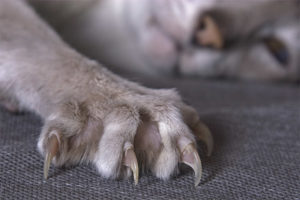
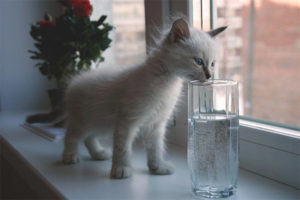
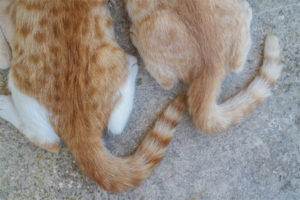
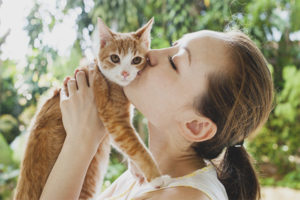
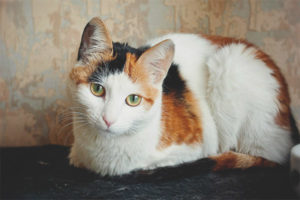
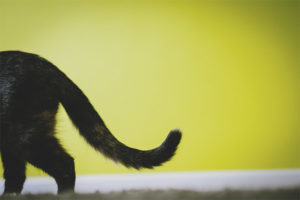
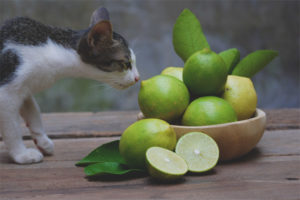
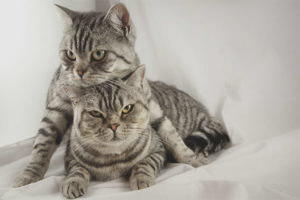
To send